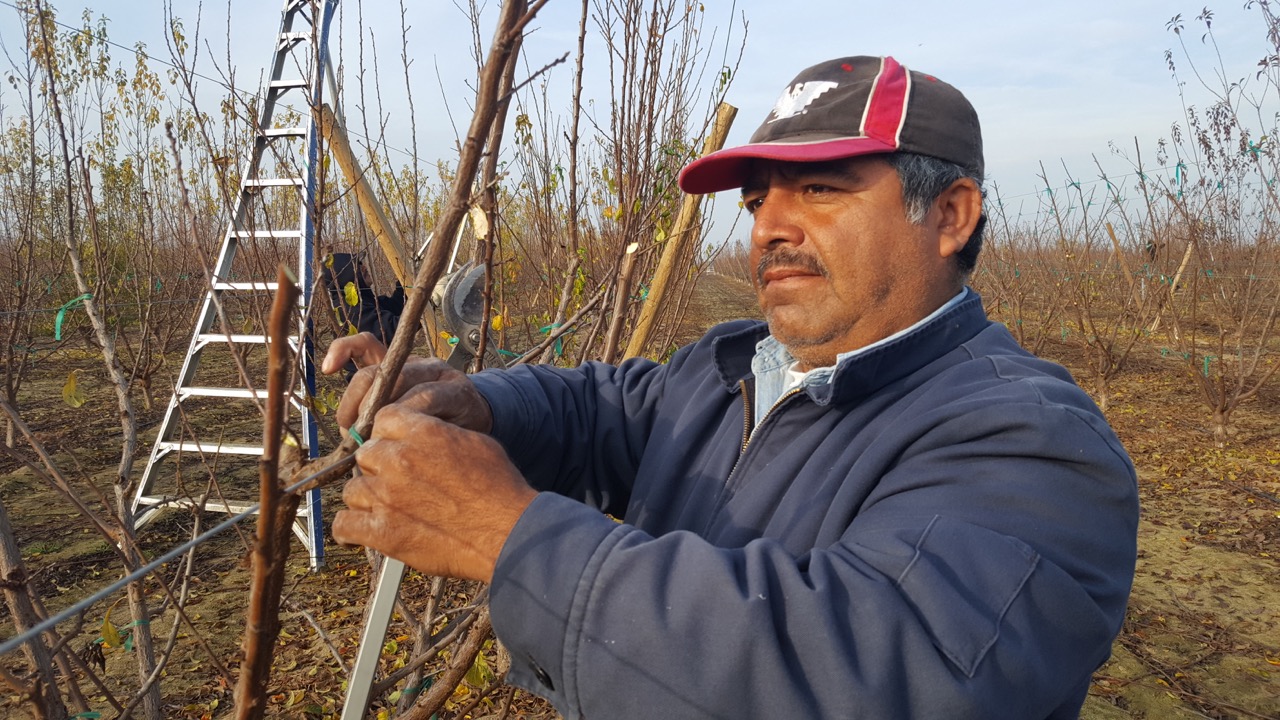Safeguarding CA Farm Workers Rights – Part 2
Updates on California Farm Workers’ Rights
By Laurie Greene, Founding Editor
Our ongoing coverage of developments among United Farm Workers (UFW), Agricultural Labor Relations Board (ALRB), Gerawan Farming, Inc. and California farm workers chronicles the continuing, increasingly complex quagmire that masquerades as protecting California farm workers’ rights.
UFW Underpaid Employees – UPDATE
As previously reported, on March 26, Monterey County Superior Court Judge Thomas Wills ruled that the UFW underpaid their own employees and mandated the UFW to pay a $1.2 million award that covers former employees, organizers, and other members of the class action suit, as well as penalties for California Labor Code Violations.
On April 27, Judge Wills added $772,000 to UFW’s court expenses for attorney fees incurred by Noland, Hamerly, Etienne & Hoss (NHEH), the law firm that represented former UFW employee Francisco Cerritos in the class action and Private Attorney General Act lawsuit on behalf of himself and other current and former UFW employees.
In issuing the additional costs to the UFW, according to a May 3 NHEH press release, Judge Wills stated that, “The Court has not placed an amount to destroy someone, and the union does serve a socially laudable purpose, but (the union) has to follow the law; and when it doesn’t do so at the expense of others and that results in drawn out, protracted and complex litigation, it cannot expect the Court to turn a blind eye to what the consequences of what that conduct are.”
Gerawan Violated Labor Law by Negotiating “in bad faith”— UPDATE
As previously published, ALRB Administrative Law Judge William L. Schmidt issued a decision on April 14 in favor of the UFW, finding Gerawan violated labor law by negotiating a collective-bargaining agreement with UFW “in bad faith—commonly called “surface bargaining”—in the eight-month period from January 2013 through August 2013.
In an April 17 news release, Gerawan Farming called the April 14 decision of the Administrative Law Judge “erroneous” in that Gerawan did bargain in good faith. Further, Gerawan maintains that imposed mandatory mediation and conciliation does not constitute volitional negotiations. Gerawan will appeal this decision. The following are excerpts from this press release:
This unprecedented ruling would punish an employer for failing to “negotiate” the terms of a “contract” dictated and imposed by the ALRB. This is an in-house judge who is not independent; he is an employee of the ALRB. He criticizes Gerawan’s positions and second-guesses how it participated in what was supposed to be a confidential mediation and trial-like arbitration, but he never asked the only relevant question: How does this forced contracting process resemble a “negotiation”?
The so-called “mandatory mediation and conciliation” procedures (MMC) are neither consensual nor voluntary. It is forced contracting. The ALRB tells the employer what wages to pay, what employees to hire or fire or promote, and what portion of the employees’ salary will be turned over to the union. The employer may not opt out, and the employees are not given the choice to ratify or reject the so-called contract that will be forced on them, even if there are provisions detrimental to them.
Gerawan had no choice but to submit to this coercive process.
…The UFW did not bargain; it asked the ALRB to impose terms, based on a forced contracting process the California Court of Appeal has since ruled to be unconstitutional (and is now under review before the California Supreme Court).
To date, UFW’s unexplained 17-year disappearance from the Gerawan farm workers remains unexplained. During its absence, the UFW never negotiated a single wage increase for any Gerawan employee, nor did it attempt to bargain for a contract, collect dues, or file a single grievance on behalf of the employees. Meanwhile, Gerawan claims its workers are among the highest paid in the industry.
Yet, the ALRB’s controversial 2002 MMC provision appears to allow this AWOL union to force current Gerawan farm workers to choose between paying union dues or losing their jobs. The majority of Gerawan employees twice asked ALRB for an election to decertify the UFW. At the ALRB’s request, the Fresno Superior Court intervened and supervised the decertification petition and election process. This was the first time in the history of the ALRB that a court oversaw an ALRB election.
As yet, ballots cast by Gerawan farm workers in the sanctioned November 2013 election to decertify the UFW have never been counted, are being stored in an undisclosed and possibly an insecure location, and are the target of legal attempts by the ALRB and UFW to be destroyed.
The Court of Appeal is preparing to decide whether the ALRB may deny employees the right to choose who will represent them at the bargaining table—a seemingly basic American democratic right. The California Supreme Court is preparing to decide whether the UFW’s longstanding abandonment of Gerawan’s employees justifies this forced contracting process. California farm workers deserve a full and fair hearing on these issues.
Who Safeguards California Farm Workers’ Rights? Part 3 – Bargaining in Bad Faith
Resources:
Gerawan February 27, 2017 press release, “Gerawan Farming Asks Court to Order Disclosure of Information Related to ALRB ‘Whistleblower’ Allegations: A 30-year ALRB Employee Alleges Corruption Inside ALRB.”










